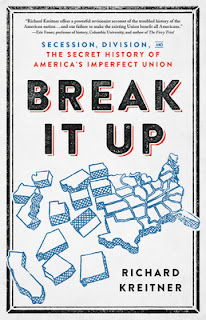Provenance - One of my housemates heard me mention that I interested (and maybe mentioned in) this book, and she ordered me a copy. I read it in the evenings over my stay in Disney World.
Yep, I'm mentioned in it.
Review - Jon Peterson has been doing a fantastic job detailing the history of roleplaying games. His Playing at the World is a voluminous history of the hobby from the first Kriegspielers to the arrival of Dungeons & Dragons. The Elusive Shift is a detailed study of the early TTRPG gaming environment, its fandom, and the effect that fandom had on the development of D&D. This time he gets into the meat of the situation - the business history of TSR, D&D's original publisher, from its conception to when Gary Gygax lost control of the company.
Peterson uses primary sources to great effect. He's not relying completely on the stories of those who were there, as memories fade and are often refurbished by their owners over time. He's done the digging through old records and sales information and memos that have survived to this day. And as a result, the picture he paints is detailed and accurate.
The core of the story begins with the creation of the game and the foundation of the company. Originally a group of hobbyists codifying rules, it tracks through the early Geneva Conventions (GenCon, in the old Horticulture Hall) to the conversations between Lake Geneva and Minneapolis to the creation of a going concern that actually paid people to early success and later challenges.
Peterson credits both men for their achievements - Arneson for the key components of roleplaying and Gygax for developing and presenting them. The bone of contention is what happens when that development outstrips the original concepts. To a great degree, the evolution of D&D left Arneson behind, and that lack of not only recognition but also recompense lay at the heart of their disagreements.
This was a slow read for me, as I would read a few pages, then stop to reflect. Is this something I already knew about? Is this new information? Does it fit with what I knew at the time? There are a lot of stories from the past that surface here - The passing of original founder Don Kaye, Dallas Egbert and the Steam Tunnels, BADD. And there is stuff that I have tucked into the back of mind over the years - Gygax versus the small press, the Origins/GenCon Rivalry, the Avalon Hill Rivalry. And there is stuff that I really didn't know much about - for example, the original split not only between Gary and Dave, but between the Lake Geneva and Minnesota crews, or that the original Chainmail published by Guidon games, or the idea that GAMA (the Game Manufacturers Association) was founded in response to TSR's actions in the hobby at large.
I was there for part of the time covered, but this isn't my story. The design department of 1985 - Me, Tracy, Zeb, Doug, Bruce, Merle, are sources, but we're minor actors in this particular passion play. At the time we were mushrooms (literally, our offices on Sheridan Springs Road had no windows). We were hobbits (to quote one of our managers, who referred to himself as a Ranger protecting Hobbitown). We were the country mice in our rural environment, far from the cool stuff in Hollywood. We were the little folk we. We would hear the distant thunder. We were mostly innocent bystanders, and on more than a few occasions, collateral damage.
So I am here, but as a cameo. My arrival (and Tracy's) is noted in passing, as are our early work during this turbulent time (sales, to my surprise, were declining when I was hired, but by the time the torch was passed, we in the design department were "pulling its own weight" financially, and we started such projects as Dragonlance and Marvel Super Heroes). There's a picture of us in a tug of war contest from a company picnic, and we look like the Junior Achievement branch of the Not Ready for Prime Time Players - I am in denim jeans and a denim vest, wearing a headband - I look like I was an extra from "The Warriors".
But the main players here are Gary and Dave, and the conflict that came out of their early collaboration. Peterson delves deep into the lawsuits and the sales records to bust some earlier myths and to track the economic history of TSR. He makes the case that Egbert, BADD, and the horrendous 60 minutes episode served to raise people's awareness of D&D and with it the game's popularity. I have to concur, but I think another factor was the rise of the mall and big box bookstores - TSR was distributed at the time not by another publishing group, but by Random House's merchandising department, who was looking to fill space in these now-larger venues.
Peterson tells much but not all and, I will still have stories to tell over beers. Things like the Dungeons & Diamonds game show, or the D&D Amusement Park we were going to set up in Lake Geneva. Or any of a half-dozen other blue-sky projects or wild ideas that may have been spun with moonbeams. Peterson treats most of his subjects gently, pushing points that he can support only through factual material. Gary's lifestyle in Hollywood is portrayed as merely "wild", and Lorraine William in credited with saving the company, and comes off as rational and sensible.
I'd be very interested in seeing "what happens next", but I don't know if the circumstances would allow it. The post-Gygax, post-Blume years at TSR were a bit of a tighter ship, absent a lot of the internal and external drama of the earlier years. There are fewer source documents and internal memos to rely on, less public denouncements of our competition, and less of a paper trail. Still, it would be interesting to see.
If you play D&D and want to know its history, this is the book to pick up. It shows where the bodies are buried and unearths treasures from the past. It was a different world in the 70s for game design, as opposed to today, and it is solid tale of relationships, design, and the growth of RPGs.
An Epic Battle, indeed. More later.





